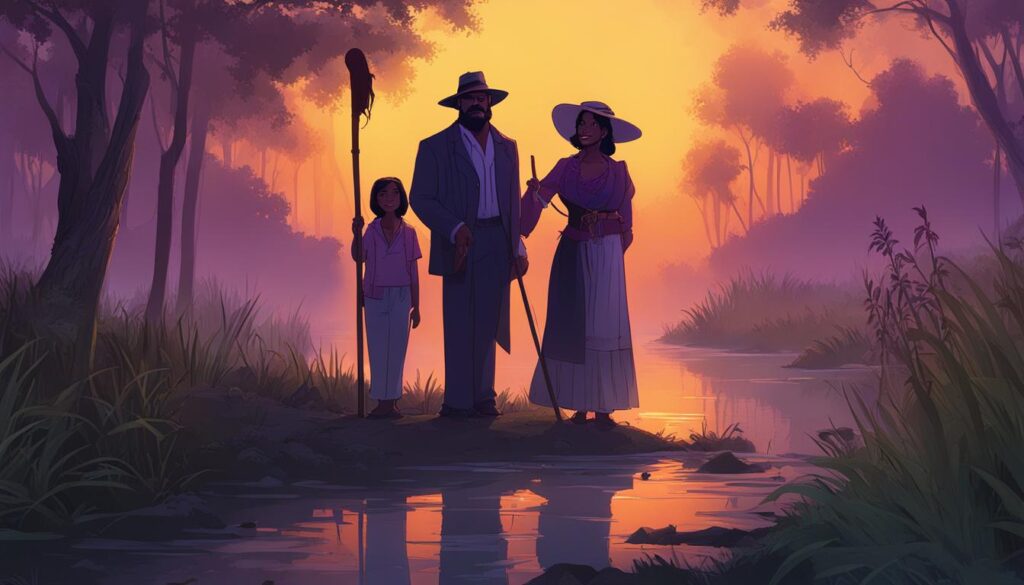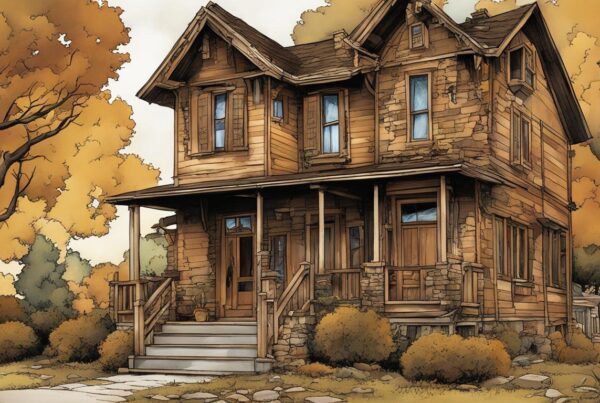If you’re a fan of James Lee Burke’s Dave Robicheaux series, you won’t want to miss Purple Cane Road, book eleven in the series. This thrilling novel takes readers on a journey through the bayou, following Dave Robicheaux on his latest adventure. In this article, we will dive into the book summary, explore the setting, characters, and themes, analyze the writing style and tone, and examine the critical reception of Purple Cane Road. So, come along and join us to learn more about this gripping crime novel.
Introduction to Dave Robicheaux
Dave Robicheaux is the central character in James Lee Burke’s series of crime novels. He is a former New Orleans police detective who now works as a private investigator. Robicheaux is a complex character, haunted by his past and struggling to come to terms with the world around him.
Born and raised in New Iberia, Louisiana, Robicheaux served in Vietnam before returning home and starting his career in law enforcement. He is a man of both principle and passion, driven by a strong sense of justice and a desire to protect those who cannot protect themselves.
Robicheaux is a flawed hero, struggling with alcoholism and plagued by memories of his troubled past. However, he is also a fiercely loyal friend and a fierce opponent of injustice. He is a man of action, unafraid to stand up for what he believes in, even if it means putting himself in harm’s way.
Dave Robicheaux’s Role in the Series
Dave Robicheaux is the central character in a series of crime novels written by James Lee Burke. In each book, Robicheaux is called upon to investigate a different crime, putting his skills as a detective and his strong moral compass to the test.
Throughout the series, readers follow Robicheaux as he navigates the murky waters of the criminal underworld in Louisiana, encountering a host of colorful and dangerous characters along the way. Robicheaux’s investigations often lead him to confront the darker aspects of human nature, from corruption and greed to violence and betrayal.
Despite the challenges he faces, Robicheaux remains committed to unraveling the truth and bringing justice to those who have been wronged.
Setting of Purple Cane Road
James Lee Burke’s Purple Cane Road is set in the atmospheric location of the bayou, which plays an important role in the story. The bayou is a unique ecosystem of marshes, swamps, and wetlands, characterized by its distinct flora and fauna. In Purple Cane Road, the bayou is a character in itself, and its moods and nuances mirror the complex emotional landscape of the novel.
The bayou offers a sense of isolation and mystery, creating a haunting and suspenseful backdrop. The murky waters and dense vegetation create an impenetrable labyrinth, a hiding place for secrets and sins. At the same time, the bayou is also a place of solace and reflection, where characters can find a moment of peace and clarity amidst the chaos of their lives.
The bayou is not just a physical setting, but it also embodies cultural and historical significance. It is home to generations of Cajun and Creole people, who live off the land and the water. The bayou is also a site of trauma and violence, bearing witness to the echoes of slavery, racism, and environmental degradation.
The haunting bayou is a central element of Purple Cane Road’s setting, providing a unique atmosphere that adds to the novel’s depth and complexity.
Plot Summary of Purple Cane Road
In Purple Cane Road, Dave is investigating the case of a young woman who was abandoned as a baby on the doorstep of a church. The case leads him into a world of political corruption and violent crime, ultimately putting his own life in danger.
As Dave delves deeper into the mystery of the abandoned baby, he discovers ties to the unsolved murder of a young girl years earlier. The investigation takes him through the dark underbelly of the bayou, where he encounters dangerous criminals and faces personal demons from his past.
The stakes are high as Dave races against time to solve the case and bring justice to the victims. Along the way, he must confront his own morality and the harsh realities of the world he inhabits.
“The bayou was a pretty place, but it was also dark and dangerous, and it didn’t suffer fools gladly. People who were bent on staying alive had to be careful about what they said and what they did.”
The gripping plot of Purple Cane Road keeps readers on the edge of their seats, with plenty of suspense and action throughout. Burke’s vivid descriptions of the bayou and its inhabitants create a sense of place that is both alluring and menacing. Overall, Purple Cane Road is a must-read for fans of the Dave Robicheaux series and those who appreciate a well-crafted crime thriller.
Main Characters in Purple Cane Road
As with most Dave Robicheaux books, the main character is, of course, Dave himself. A complex and flawed lawman with a traumatic past, Dave is driven by a fierce sense of justice, often pushing him to take matters into his own hands. In Purple Cane Road, Dave is accompanied by his partner, Clete Purcell, another homicide detective who often clashes with Dave’s unorthodox methods.
Other important characters in the book include:
| Character Name | Description |
|---|---|
| Ariel T. “A.T.” Winkler | A wealthy former lawyer who hires Dave and Clete to find his missing daughter, this character is charming yet manipulative. |
| Griffin “Griff” Lott | A disfigured Vietnam War veteran turned private detective, who joins Dave and Clete on their search for A.T.’s daughter. |
| Ida Durbin | A powerful and corrupt local politician with ties to organized crime, this character serves as one of the book’s primary antagonists. |
Together, these characters form a web of relationships that shape the plot of the novel, as they navigate themes of justice, corruption, and personal demons.

Themes Explored in Purple Cane Road
In Purple Cane Road, James Lee Burke masterfully explores several themes that are relevant in modern society.
Justice
The theme of justice is prominent in Purple Cane Road. The protagonist, Dave Robicheaux, is a detective who seeks justice for victims of crime. Throughout the story, he grapples with the concept of justice and its complicated nature. Burke provides a thought-provoking commentary on the limits of justice and what justice truly means.
Corruption
The issue of corruption is also a key theme in Purple Cane Road. The story sheds light on the corrupt nature of certain individuals and institutions in society. Burke exposes the harsh realities of corruption and the devastating impact it can have on communities.
Consequences of Past Actions
Another theme that is explored in Purple Cane Road is the idea that actions have consequences. As the plot unfolds, the characters are forced to face the consequences of their past actions. Burke highlights the importance of taking responsibility for one’s choices and the impact they can have on oneself and those around them.
“Time doesn’t really heal anything. It just decorates the pain with a veil of forgetfulness while the hurt gets worse beneath the cover of time”
These themes are woven together seamlessly to create a gripping narrative that will keep readers on the edge of their seats.
Writing Style and Tone in Purple Cane Road
James Lee Burke’s writing style in Purple Cane Road is characterized by vivid descriptions of the setting and a haunting tone that draws readers into the story. Burke’s use of language is poetic and evocative, painting a picture of the Louisiana bayou that is both beautiful and foreboding.
The author’s mastery of imagery creates a sense of atmosphere that is crucial to the overall tone of the book. Burke’s descriptions of the natural world surrounding the characters are rich and immersive, transporting readers to the heart of the bayou and allowing them to experience the story on a visceral level.
“I was in that mood where sound was exaggerated and seemed to come from great distances, where light was too bright and every scent carried some dark association.”
Burke’s writing style is also characterized by a strong sense of place and a deep understanding of the culture and history of the region. His attention to detail and commitment to accuracy make the bayou setting feel authentic and fully realized, creating a backdrop for the story that is just as compelling as the characters themselves.
Use of Literary Techniques
Burke’s use of literary techniques is another key aspect of his writing style. The author employs a range of techniques, from symbolism and metaphor to foreshadowing and allusion, that add depth and complexity to the story.
For instance, the recurring motif of the purple cane throughout the book serves as a symbol for both the unity and the divisions within the community. Similarly, the use of the phrase “the past is never dead” is a nod to William Faulkner’s work and reinforces the idea that the past is an inescapable force that shapes the present.
Overall Tone
The tone of Purple Cane Road is one of melancholy and introspection, as the characters grapple with their own pasts and the dark secrets of the community. Despite the grim subject matter, however, Burke’s writing style is also marked by moments of beauty and transcendence, as the characters find moments of redemption and hope amid the darkness.
Critical Reception of Purple Cane Road
Purple Cane Road received widespread critical acclaim upon its publication, with many reviewers praising James Lee Burke’s masterful storytelling and evocative prose.
“Burke blends complex characters, vivid settings and a cathartic, violent plot with such skill that he creates something deeply haunting.” – Publishers Weekly
Reviewers also noted the book’s exploration of weighty themes, such as justice, corruption, and redemption, and the compelling way in which Burke weaves these into the narrative.
While some critics found fault with certain elements of Purple Cane Road, such as the pace of the plot or the treatment of certain characters, overall, the book was hailed as a triumph and a standout entry in the Dave Robicheaux series.
Connections to Other Dave Robicheaux Books
James Lee Burke’s Dave Robicheaux series consists of 24 novels, with Purple Cane Road being the eleventh book. As such, there are several references and connections to events and characters from previous books in the series throughout Purple Cane Road.
One notable connection is the reappearance of Dave’s former partner Clete Purcel, who first appeared in Neon Rain and has become a recurring character in the series. In Purple Cane Road, Clete plays a significant role in helping Dave uncover the truth behind his wife’s death.
“Clete’s face was shiny and his eyes had a puffy, strained look, like those of a man who hadn’t been able to sleep in a long while. I could see why. He’d put up with a lot, because he believed in me. He didn’t like cops; he didn’t like justice. He had what he called his own concept of both, which was closer to anarchy and vengeance.”
Beyond characters, there are also thematic connections between the books in the series. For example, the issue of corruption within the criminal justice system is a recurring theme throughout the Dave Robicheaux books, and it is explored in depth in Purple Cane Road.
Overall, while Purple Cane Road can be read as a standalone novel, it is enriched by its connections to the larger Dave Robicheaux series, providing a more complete understanding of the character and his world.
Conclusion
In summary, Purple Cane Road is the eleventh book in the Dave Robicheaux series by James Lee Burke. It follows the titular character, a detective in Louisiana, as he investigates the murder of a young woman. Set in the atmospheric bayou, the book explores themes of justice, corruption, and the consequences of past actions.
James Lee Burke’s writing style and imagery create a dark and foreboding tone throughout the book, adding to the sense of unease. While the critical reception to Purple Cane Road was mixed, many readers of the series still found it to be a thrilling and engaging read.
For fans of the Dave Robicheaux series, Purple Cane Road offers a deeper understanding of the character and his world. However, for new readers, it may be best to start with an earlier book in the series to fully appreciate the character development and connections to past events.
In conclusion, Purple Cane Road is a compelling addition to the Dave Robicheaux series, offering a glimpse into the complex and often dangerous world of Louisiana’s bayou.



